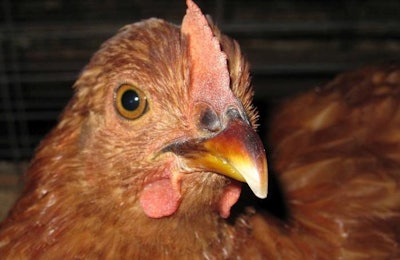
Veterinary authorities in Lebanon have reported a second outbreak of highly pathogenic avian influenza (HPAI) caused by the H5N1 virus variant to the World Organisation for Animal Health (OIE). Like the first outbreak reported in April, the latest occurred at a farm in the Bekaa Valley; around 20,000 birds died as a result of the infection and the remaining 106,000 have been destroyed.
Outbreaks continue in Africa
Cameroon reported its first confirmed outbreak of HPAI for a decade in late May. Since then, the veterinary authority has reported no new cases to OIE but, according to Bloomberg, the disease has spread from the capital city to the main poultry-producing area in the west of the country. More than 200,000 birds are reported to have been destroyed and all poultry sales in the area have been halted in an attempt to control the spread of the disease.
“If the outbreak continues to spread as it is doing, then you can be sure that hundreds of farms will be shut down,” Francois Djonou, head of the Interprofessional Poultry Organization of Cameroon (Ipavic) told the news agency. The country’s ambitions to increase poultry meat output to 50 million birds from last year’s 45 million now looks unlikely to be achieved.
As well as supplying 80 percent of domestic poultry requirements, the area is also a source of breeding stock for traders returning to Gabon, Equatorial Guinea and the Congo Republic so there are fears of the virus spreading to these neighboring countries.
Evidence of the further spread of avian flu in the country comes from a recent report in Business in Cameroon. It refers to a 5th outbreak of the disease, which has now been confirmed in the capital, Yaoundé, as well as in the north (Daber), south (Ebolowa) and west (Bayangam and Bafoussam) of the country.
Djonou said that many poultry operators are ignoring the ban on the sale of chickens and eggs, and he called for regulated sales at temporary markets so that farmers can maintain income through the sale of healthy birds.
Veterinary authorities in Nigeria have reported to OIE three new outbreaks of HPAI in poultry caused by the H5N1 virus variant. These are the latest in a series of outbreaks that started in January 2015 and have been blamed on poor farm biosecurity by the authorities. A total of 35,400 birds died or were destroyed in the recent outbreaks, which affected two farms in Kaduna state and one in Federal Capital Territory.
Europe: low-pathogenic virus in Dutch poultry flock
At Hiaure in the northerly province of Friesland in the Netherlands, a flock of 44,630 birds was destroyed last week after a low-pathogenic H7N9 avian flu virus was detected during routine surveillance. The birds belonged to two flocks at the farm, both with outdoor access, according to the agriculture ministry. The usual controls have been set up in the area to check other poultry flocks and prevent the spread of the infection.
There have been no new outbreaks of H7N7 HPAI in Italy so the total count remains at two, both at Ferrara in the region of Emilia-Romagna. The restriction zones for the first confirmed case have already been lifted, according to the Italian health authority and research organization for animal health and food safety, IZSVe, while the surveillance zone related to the second outbreak is due to end on June 17.
Mixed avian flu news from Asia
Vietnam has suffered from many sporadic HPAI outbreaks in recent years but the veterinary authority has declared the latest H5N6 and H5N1 events “resolved” to the OIE. The most recent outbreaks were reported in February and April, respectively.
Two weeks ago, the authorities in Hong Kong confirmed the presence of a low-pathogenic avian flu virus of the H7N9 subtype in a sample of fecal droppings at a wet poultry market. Markets were closed temporarily and imports were suspended.
However, one expert has expressed concern, telling the South China Morning Post that the import ban does not apply to species other than chickens, and that the virus could easily be reintroduced to the territory on silkies (“Chinese chickens”), chukar partridges, pheasants and quails, which are coming into Hong Kong from China increasing numbers to fill the demand gap. These exotic species are just as vulnerable to the avian flu virus, according to Dr. Alexander Wong, consultant to the United Nations.
China’s largest cities are taking precautions to stop the spread of influenza A(H7N9) in their human populations, according to Asia One. The disease has claimed six lives, the report says. Having reported 4 new cases over the weekend, Shanghai has disinfected its schools.
There have been two new outbreaks of HPAI in Taiwanese poultry, according to Focus Taiwan. First came news of a confirmed outbreak of H5N2 at a chicken farm in Taixi Township in Yunlin County, with 10,356 birds culled as a precaution against further spread.
Last week, the same source reported an outbreak in Pingtung County, which resulted in the culling of 40,864 chickens. The presence of an H5 subtype of the HPAI virus at the farm has been confirmed.
This brings to 38 the number of HPAI outbreaks on Taiwan poultry farms since January 1.


















